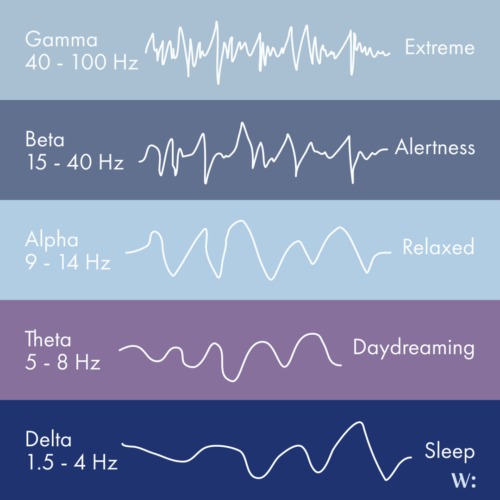4 common lifestyle habits that impact your lifespan
Every organism is evolved to be best adapted to its environment. A salmon is amazing at living in water, bumblebees are splendid in grassy meadows, and squirrels dominate the forests. But humans? Our modern urban lifestyle is totally different from the one we evolved to, which has consequences on our health. So how about we try to bring our lifestyle a bit closer to the one that we’re best suited for? Here are 4 lifestyle habits that will bring you closer to your best health and prolong your lifespan. It will only take 10 min but it might prolong your life for entire years.

Physical activity
We had to start with the obvious one. Fitness coaches, doctors and your 3rd grade PE teacher weren’t lying when saying exercise is the best thing in the world. Exercise (and physical activity in general) are some of the most potent things that will affect your lifespan.
For example, in one of our previous articles we discussed how there’s research evidence that physical activity can prolong your lifespan by around 4.2 years. In particular, endurance exercises like cardio will have the biggest impact on longevity. Though for best overall health it’s also recommended to include some strength training, as it protects your muscles from withering away with age. Based on this research article we’ve calculated that you can see the greatest longevity benefits by doing 450-750 min of moderate-intensity exercise (cycling, walking, swimming, etc) per week.
750 min!? – you might be shocked to see. But don’t worry. Meeting that number is not necessary. Researchers say that even though doing the maximum does have the greatest longevity benefits, most of the benefits will come from doing just 150 min of moderate-intensity exercise per week. And that’s actually what the World Health Organisation recommends.
"Doing 450 min of cycling, swimming or fast-paced walking per week may add up to 4.2 years to your lifespan."
You can start by doing 25 min of fast-paced walking per day, every day, and in theory, that should add a few years to your lifespan. It’s not magic. Just imagine how much our ancestors moved around when traversing the savannas and woodlands! We’re evolved for physical activity.
You may also like: Why we need muscle for a high-quality life
Diet
Next up, we have food. Food is great, food is delicious. Food is important. You are not what you eat (otherwise you’d be a cannibal), but your health does greatly depend on what you eat. Not just your health, but your lifespan.
So what’s the best diet for longevity? The jury is still out on this one, but by far one of the top most healthiest and well-researched diets in the world is the Mediterranean diet. Various studies show that people who follow it (even if not perfectly) live 2 or even 4.4 years longer on average than people who eat other diets.
Some researchers decided to go even further and perfect the Mediterranean diet specifically for longevity. In our previous article, we’ve seen how perfectly following this diet can add up to 13 years to your lifespan, according to what researchers have found. They called it the optimal diet.
This diet involves eating more whole grains, fish, nuts, legumes, fruits, and vegetables while slightly cutting down on dairy, eggs, white meat, and refined grains and completely eliminating processed meat, red meat, and sugar-sweetened beverages. There is a handy calculator which can show you how (for example) eating 200g more legumes per week will affect your lifespan.
"On average, moderately following the Mediterranean diet adds 2-4.4 years to your lifespan. But perfectly following the optimised longevity diet can add up to 13 years."
For the diet, you can start by including more legumes, nuts and vegetables in your meals, and limiting your sugar and processed meat consumption.
Notable finding: One Italian study found that people who don’t smoke, follow the Mediterranean diet, and exercise live 12 years longer on average than people who smoke, don’t follow the Mediterranean diet and don’t exercise.
You may also like: Can we live past 150? – findings from a new study

Sleep
Are you surprised? Yes, sleep also has a huge impact on your lifespan. Pretty much every single animal on Earth has to sleep, so it must be important for our health. But here things get more nuanced.
It seems like there is a golden mean of how much sleep is healthy. Research findings show that the most optimum amount of sleep is 7 hours per day (on average). And that people who sleep less than 7 hours tend to have shorter lifespans. What’s mind-blowing is that people who sleep for much more than 7 hours per day also live less!
One study found that people who sleep 7-9 hours per day usually live 1-3 years longer in best health than people who sleep less than 7 or more than 9 hours per day. And those who have severe sleep disturbances on average have 3-6 years less of their “healthy years”. Sleep is important!
"Sleeping for 7-9 hours seems to be the best range for longevity, with less sleep (and more sleep) leading to shorter lives."
Although, some people naturally sleep more than others, and that’s okay. If you find yourself struggling to keep a consistent sleep schedule of 7-9 hours per day, you can also break your sleep up into a 5-hour night sleep plus a 2-hour siesta in the early afternoon.
You may also like: Napping: 4 reasons why you should consider it
Stress reduction
Stress is all around us. Stress is in us. Stress is how we shorten our lives. But actually, no! Stress also has some nuances. A small amount of it might actually be beneficial for longevity.
Researchers say that mild stress can actually be good for our health. What’s “mild” stress you might ask? It’s the sort of stress you get from exercising, cold shock (like cold showers), or hot shock (like saunas). What’s harmful is chronic stress.
Chronic stress significantly affects our lifespan. The more chronic stress you have, the shorter you will live on average, according to research. There might not be a specific number, as overall life stress is pretty hard to measure, but generally, chronic stress reduces the quality of your health, including your lifespan.
On the other hand, things that reduce stress like mindfulness meditation have shown the potential to prolong life. Meditation can result in longer telomeres. Telomeres are the caps at the ends of your chromosomes and their length is significantly related to how long you’ll live. Telomere length is one of the most powerful indicators of longevity. There has also been some evidence that meditation can slow down brain ageing.
"Mild stress from exercise or cold showers may prolong lifespan but chronic stress can significantly shorten it."
Meditation is not the only thing you can do to increase your lifespan in relation to stress. Virtually any way to reduce stress will be good for you. Whether it’s gratitude journaling, optimism training, grounding (walking barefoot), or just walking your dog.
You may also like: Stand strong: building resilience to weather life’s storms

So what do we know from research?
- Doing 450-750 min of moderate-intensity physical activity per week (for example cycling) can add around 4.2 years to your lifespan. Doing at least 150 min of moderate-intensity exercise per week will give you most of the longevity results, although doing more is better
- Following the Mediterranean diet is associated with a 2-4.4 year increase in lifespan. Following the longevity diet perfectly can add up to 13 years to your lifespan
- The amount of “healthy years” (healthspan) in people who sleep 7-9 hours is 1-3 years longer than in people who sleep less than 7 or more than 9 hours per day
- Some stress is okay (a little bit can even be healthy), but chronic stress can really reduce your lifespan, so finding creative stress management strategies is great for longevity
Were these 4 longevity habits surprising? Probably not. And that’s their magic. They’re some of the simplest things we could do, yet they’re also some of the most powerful things.
Your lifespan is not elusive. It’s achievable. It’s achievable not only with longevity supplements. There are clear decisions you can make in your life that will affect how long you live, and how healthy you feel. The decisions that you can make right now. The decisions that will affect your entire future life.
More from the magazine
Selected stories from our Team








